
Wilberforce University is a private historically black university in Wilberforce, Ohio. Affiliated with the African Methodist Episcopal Church (AME), it was the first college to be owned and operated by African Americans. It participates in the United Negro College Fund.
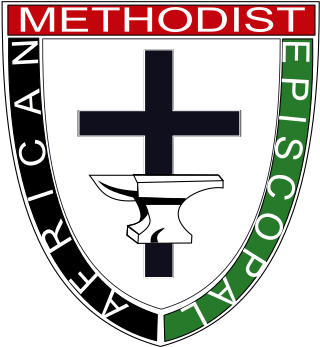
The African Methodist Episcopal Church, usually called the AME Church or AME, is a predominantly African American Methodist denomination. It adheres to Wesleyan-Arminian theology and has a connexional polity. The African Methodist Episcopal Church is the first independent Protestant denomination to be founded by black people; though it welcomes and has members of all ethnicities.
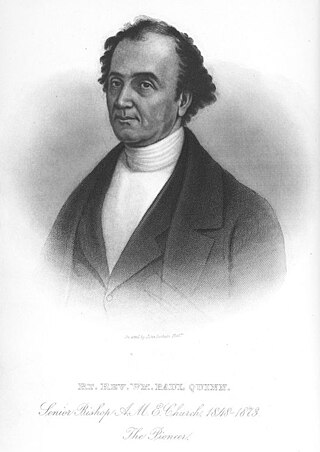
William Paul Quinn was born in India and immigrated to the United States, where he became the fourth bishop of the African Methodist Episcopal Church, the first independent black denomination in the United States when founded in 1816 in Philadelphia, Pennsylvania.

Paul Quinn College (PQC) is a private historically black Methodist college in Dallas, Texas. The college is affiliated with the African Methodist Episcopal Church (AME). It is the oldest historically black college west of the Mississippi River and the nation's first urban work college.

Richard Harvey Cain was a minister, abolitionist, and United States Representative from South Carolina from 1873 to 1875 and 1877 to 1879. After the American Civil War, he was appointed by Bishop Daniel Payne as a missionary of the African Methodist Episcopal Church in South Carolina. He also was one of the founders of Lincolnville, South Carolina.

Lewis Woodson was an educator, minister, writer, and abolitionist. He was an early leader in the African Methodist Episcopal Church (AME) in Ohio and Pennsylvania. Woodson started and helped to build other institutions within the free African-American communities in Ohio and western Pennsylvania prior to the American Civil War.
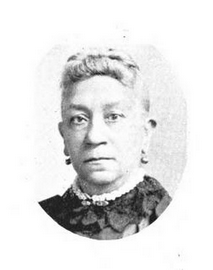
Sarah Jane Woodson Early, born Sarah Jane Woodson, was an American educator, black nationalist, temperance activist and author. A graduate of Oberlin College, where she majored in classics, she was hired at Wilberforce University in 1858 as the first black woman college instructor, and also the first black American to teach at a historically black college or university (HBCU).

Daniel Alexander Payne was an American bishop, educator, college administrator and author. A major shaper of the African Methodist Episcopal Church (A.M.E.), Payne stressed education and preparation of ministers and introduced more order in the church, becoming its sixth bishop and serving for more than four decades (1852–1893) as well as becoming one of the founders of Wilberforce University in Ohio in 1856. In 1863 the AME Church bought the college and chose Payne to lead it; he became the first African-American president of a college in the United States and served in that position until 1877.
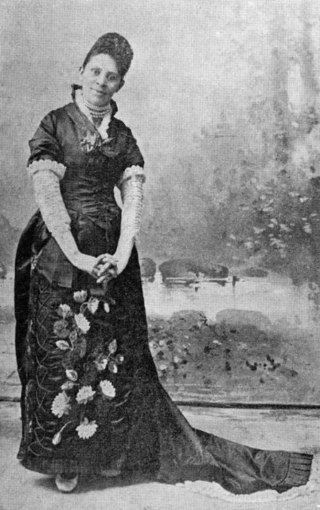
Hallie Quinn Brown was an American educator, writer and activist. Originally of Pittsburgh, Pennsylvania, she moved with her parents while quite young to a farm near Chatham, Canada, in 1864 and then to Ohio in 1870. In 1868, she began a course of study in Wilberforce University, Ohio, from which she graduated in 1873 with the degree of Bachelor of Science.
Thomas James (1804–1891) had been a slave who became an African Methodist Episcopal Zion minister, abolitionist, administrator and author. He was active in New York and Massachusetts with abolitionists, and served with the American Missionary Association and the Union Army during the American Civil War to supervise the contraband camp in Louisville, Kentucky. After the war, he held national offices in the AME Church and was a missionary to black churches in Ohio. While in Massachusetts, he challenged the railroad's custom of forcing blacks into second-class carriages and won a reversal of the rule in the State Supreme Court. He wrote a short memoir published in 1886.
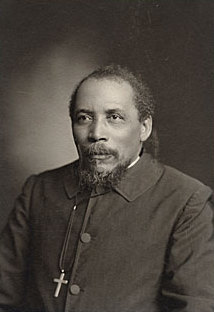
Benjamin Tucker Tanner was an American clergyman and editor. He served as a bishop in the African Methodist Episcopal Church from 1886, and founded The Christian Recorder, an important early African American newspaper.
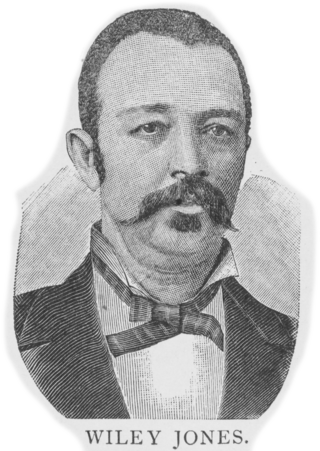
Walter "Wiley" Jones was a businessman in Pine Bluff, Arkansas, who was one of the wealthiest African-Americans in his state. He owned the first streetcar company in Pine Bluff and a park in the city which housed the fairgrounds. A devotee of horse racing, he owned stables and a race track on the park grounds. He also owned a saloon. He was active in civic affairs and was an advocate for civil rights.
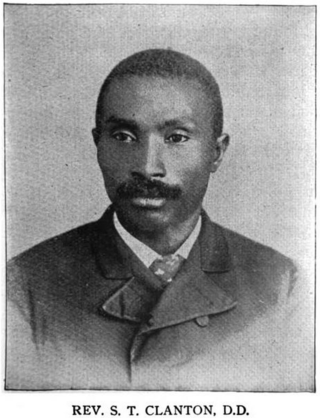
Solomon T. Clanton was a leader in the Baptist Church. He was educated in New Orleans and Chicago and became the first black graduate of the theological department at the Baptist Union Theological Seminary at Morgan Park, Chicago, Illinois, associated with the University of Chicago. He spent his career as an educator and leader in the Baptist Church. He served as a professor at Leland University, Alabama A&M University, and Selma University, and before his death as assistant librarian at the University of Chicago. He was acting president for a short time at Alabama A&M and was dean of the theological department at Selma University. During his career, he was also an educator in high schools and Sunday schools.

William H. Gibson was an educator and community organizer in Louisville, Kentucky. He was one of the first African American teachers in that city, active before the Emancipation Proclamation. He was a civil servant after the American Civil War, and was subject to attacks by the Ku Klux Klan. In 1876 he founded the United Brothers of Friendship, a fraternal organization for African Americans.
John Hudson Riddick was an educator, community leader, and minister in the African Methodist Episcopal (AME) church. In 1872 he was elected a member of the Norfolk, Virginia, city council. He was an AME minister at a number of churches and a leader in the Washington and Delaware Conferences of the church.

James J. Durham was a Baptist minister in South Carolina and the founder of Morris College in 1908. He was a member of the board at Morehouse College and an officer in state and national Baptist conventions.
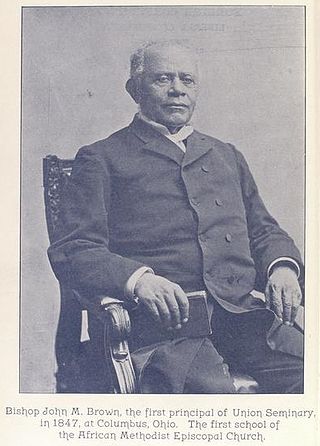
John Mifflin Brown was a bishop in the African Methodist Episcopal (AME) Church. He was a leader in the underground railroad. He helped open a number of churches and schools, including the Payne Institute which became Allen University in Columbia, South Carolina, and Paul Quinn College in Waco, Texas. He was also an early principal of Union Seminary which became Wilberforce University.
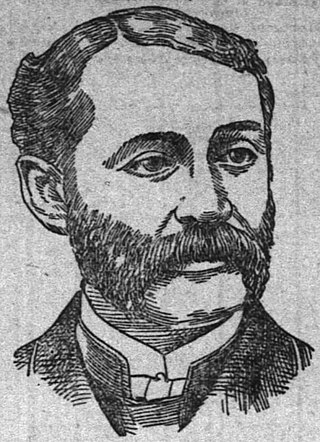
James Matthew Townsend was an African Methodist Episcopal (AME) minister and a state legislator from Indiana. A Republican, he served in the legislature in the 1884 session. From 1889 to 1891 he was recorder at the General Land Office in Washington, DC, appointed by President Benjamin Harrison.
The Prairie View Bowl was a postseason college football bowl game normally held on New Year's Day in Houston, Texas. The game was first held following the 1928 season. The annual game matched Prairie View A&M against a team from another historically black college or university (HBCU). From 1929 through 1952 the game was played in Buffalo Stadium, which was primarily a Minor League Baseball park. In 1953 the game moved to Public School Stadium where it remained until the bowl folded. The 33rd and last game was played January 1, 1961. Prairie View's record in the 33 games was 19–12–2 (.606).

Hightower Theodore Kealing, also known as H.T. Kealing was a writer, educator, and prominent member of the African Methodist Episcopal Church. Born as the son of former slaves, Kealing was among the first generation of African Americans to attend school during Reconstruction.

















